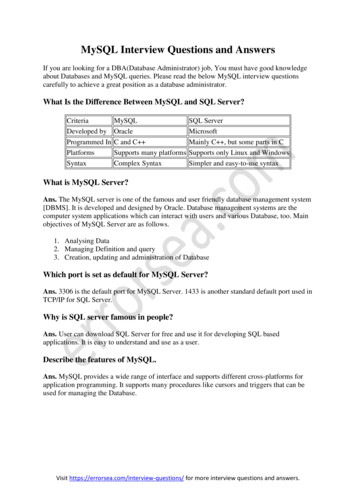
Transcription
-------------Q1. What is the difference between an Inner Class and a Sub-Class?Ans: An Inner class is a class which is nested within another class. An Inner class has access rightsfor the class which is nesting it and it can access all variables and methods defined in the outerclass.A sub-class is a class which inherits from another class called super class. Sub-class can access allpublic and protected methods and fields of its super class.Q2. What are the various access specifiers for Java classes?Ans: In Java, access specifiers are the keywords used before a class name which defines the accessscope. The types of access specifiers for classes are:1. Public : Class,Method,Field is accessible from anywhere.2. Protected:Method,Field can be accessed from the same class to which they belong or from thesub-classes,and from the class of same package,but not from outside.3. Default: Method,Field,class can be accessed only from the same package and not from outsideof it’s native package.4. Private: Method,Field can be accessed from the same class to which they belong.Q3. What's the purpose of Static methods and static variables?Ans: When there is a requirement to share a method or a variable between multiple objects of aclass instead of creating separate copies for each object, we use static keyword to make a methodor variable shared for all objects.Q4. What is data encapsulation and what's its significance?Ans: Encapsulation is a concept in Object Oriented Programming for combining properties andmethods in a single unit.Encapsulation helps programmers to follow a modular approach for software development aseach object has its own set of methods and variables and serves its functions independent of otherobjects. Encapsulation also serves data hiding purpose.Q5. What is a singleton class? Give a practical example of its usage.A singleton class in java can have only one instance and hence all its methods and variables belongto just one instance. Singleton class concept is useful for the situations when there is a need tolimit the number of objects for a class.The best example of singleton usage scenario is when there is a limit of having only oneconnection to a database due to some driver limitations or because of any licensing issues.
-------------Q6. What are Loops in Java? What are three types of loops?Ans: Looping is used in programming to execute a statement or a block of statement repeatedly.There are three types of loops in Java:1) For LoopsFor loops are used in java to execute statements repeatedly for a given number of times. For loopsare used when number of times to execute the statements is known to programmer.2) While LoopsWhile loop is used when certain statements need to be executed repeatedly until a condition isfulfilled. In while loops, condition is checked first before execution of statements.3) Do While LoopsDo While Loop is same as While loop with only difference that condition is checked after executionof block of statements. Hence in case of do while loop, statements are executed at least once.Q7: What is an infinite Loop? How infinite loop is declared?Ans: An infinite loop runs without any condition and runs infinitely. An infinite loop can be brokenby defining any breaking logic in the body of the statement blocks.Infinite loop is declared as follows:for (;;){// Statements to execute// Add any loop breaking logic}Q8. What is the difference between continue and break statement?Ans: break and continue are two important keywords used in Loops. When a break keyword isused in a loop, loop is broken instantly while when continue keyword is used, current iteration isbroken and loop continues with next iteration.In below example, Loop is broken when counter reaches 4.for (counter 0;counter 10;counter )
-------------system.out.println(counter);if (counter 4) {break;}}In the below example when counter reaches 4, loop jumps to next iteration and any statementsafter the continue keyword are skipped for current iteration.for (counter 0;counter 10;counter )system.out.println(counter);if (counter 4) {continue;}system.out.println("This will not get printed when counter is 4");}Q9. What is the difference between double and float variables in Java?Ans: In java, float takes 4 bytes in memory while Double takes 8 bytes in memory. Float is singleprecision floating point decimal number while Double is double precision decimal number.Q10. What is Final Keyword in Java? Give an example.Ans: In java, a constant is declared using the keyword Final. Value can be assigned only once andafter assignment, value of a constant can’t be changed.In below example, a constant with the name const val is declared and assigned avalue:Private Final int const val 100When a method is declared as final,it can NOT be overridden by the subclasses.This method arefaster than any other method,because they are resolved at complied time.When a class is declares as final,it cannot be subclassed. Example String,Integer and other wrapperclasses.
-------------Q11. What is ternary operator? Give an example.Ans: Ternary operator , also called conditional operator is used to decide which value to assign to avariable based on a Boolean value evaluation. It's denoted as ?In the below example, if rank is 1, status is assigned a value of "Done" else "Pending".public class conditionTest {public static void main(String args[]) {String status;int rank 3;status (rank 1) ? "Done" : "Pending";System.out.println(status);}}Q12: How can you generate random numbers in Java?Ans: Using Math.random() you can generate random numbers in the range greater than or equalto 0.1 and less than 1.0Using Random class in package java.utilQ13. What is default switch case? Give example.Ans: In a switch statement, default case is executed when no other switch condition matches.Default case is an optional case .It can be declared only once all other switch cases have been coded.In the below example, when score is not 1 or 2, default case is used.public class switchExample {int score 4;public static void main(String args[]) {switch (score) {case 1:system.out.println("Score is 1");break;case 2:system.out.println("Score is 2");break;default:system.out.println("Default Case");}
-------------}}Q14. What's the base class in Java from which all classes are derived?Ans: java.lang.objectQ15. Can main() method in Java can return any data?Ans: In java, main() method can’t return any data and hence, it’s always declared with a voidreturn type.Q16. What are Java Packages? What's the significance of packages?Ans: In Java, package is a collection of classes and interfaces which are bundled together as theyare related to each other. Use of packages helps developers to modularize the code and group thecode for proper re-use. Once code has been packaged in Packages, it can be imported in otherclasses and used.Q17. Can we declare a class as Abstract without having any abstract method?Ans: Yes we can create an abstract class by using abstract keyword before class name even if itdoesn't have any abstract method. However, if a class has even one abstract method, it must bedeclared as abstract otherwise it will give an error.Q18. What’s the difference between an Abstract Class and Interface in Java?Ans: The prima
Q26. Is there any way to skip Finally block of exception even if some exception occurs in the exception block? Ans: If an exception is raised in Try blo ck, control passes to catch block if it exists otherwise to finally block. Finally block is always executed when an exception occurs and the only way to avoid
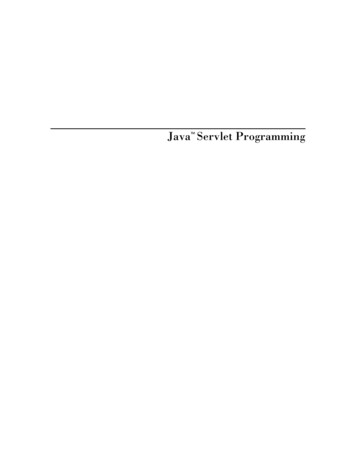
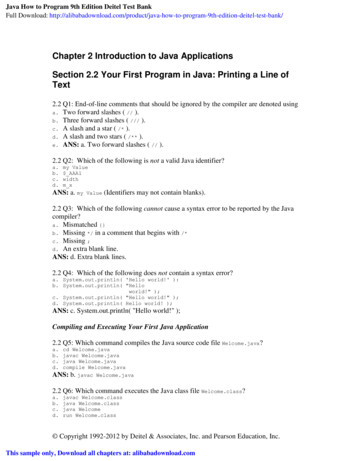

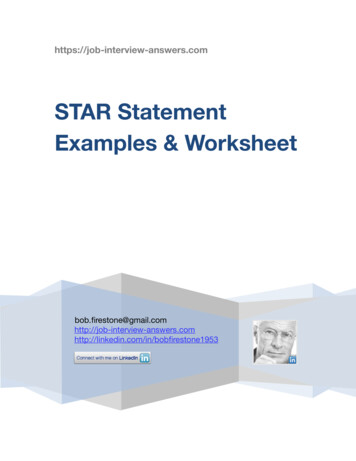
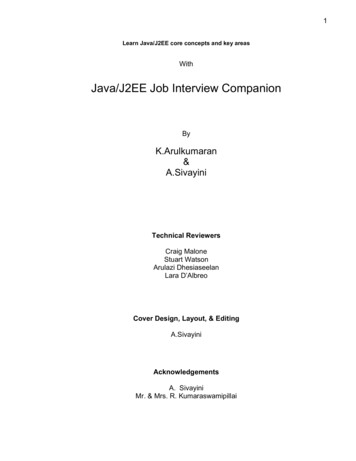
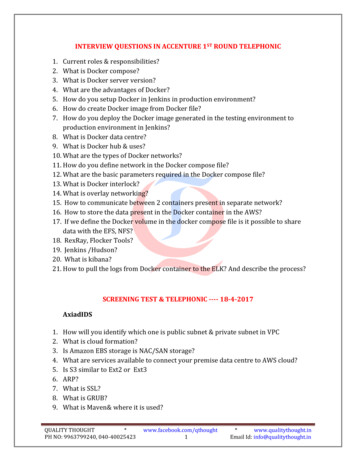
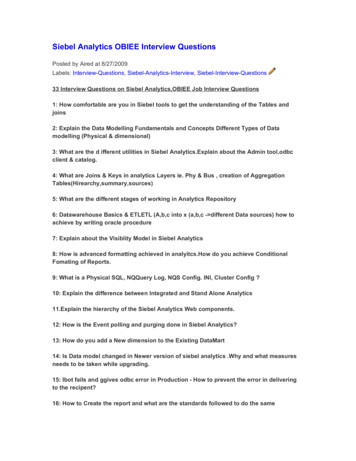
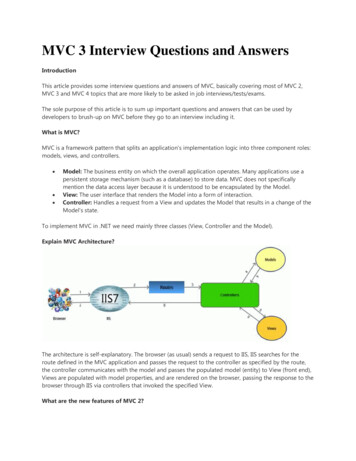
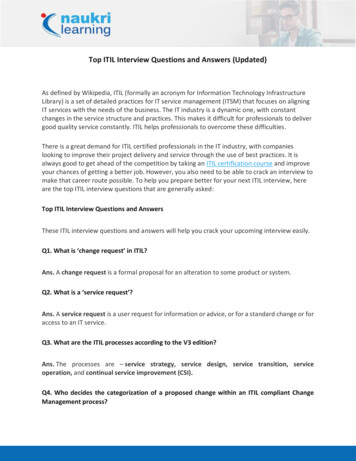
![Informatica Interview Questions and Answers [Scenario-Based]](/img/2/informatica-interview-questions-and-answers-scenario-based-1.jpg)

